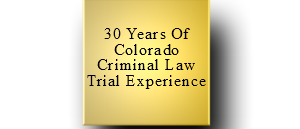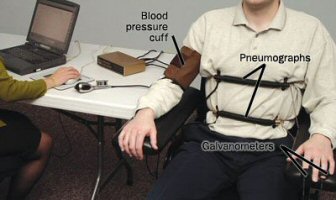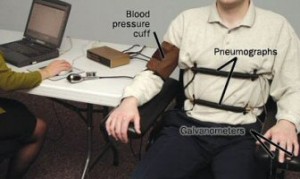




Oct 21
Colorado Criminal Law – Can I Tell The Jury I Offered To Take A Polygraph – Lie Detector Test?
By H Michael Steinberg Colorado Sex Crimes Criminal Defense Lawyer
_________________
Colorado Criminal Law – Can I Tell The Jury I Offered To Take A Polygraph – Lie Detector Test?
Colorado Criminal Law – Can I Tell The Jury I Offered To Take A Polygraph – Lie Detector Test? – One of the most frequent questions I receive as a Colorado criminal defense lawyer is the question from my clients that pertains to the idea of not only taking a lie detector – polygraph test – but to introduce this evidence to a jury at their criminal trial if the case proceeds to trial.
This article addresses the Colorado Court’s answer to that question – which is simply this – the results of a polygraph test are not admissible at a Colorado criminal trial NOR – after a recent Colorado case was decided – is even the OFFER to take a polygraph as proof of “consciousness of innocence.”
The Issues Underlying The “Relevance” Of An Offer To Take A Polygraph By The Defendant
A Defendant who has taken a polygraph and passed or who offers to take a polygraph as evidence of actual or the “consciousness of innocence” will argue at trial, that to deny him the right of introducing that evidence violates his Constitutional right to present evidence in his own defense.
The lie-detector – polygraph test is a tool often used by Colorado state and Federal authorities to eliminate suspects and to sometimes redirect an investigation in quick order. Police often offer the polygraph during the investigation phase. There are times when a suspect will accept that offer and the polygraph is actually conducted. Sometimes even when a suspect passes the test – the case is STILL PROSECUTED. There are other times when law enforcement’s offer to take the poly is made and accepted by the accused but the poly is not actually ever administered.
The issue as to the admissibility of this evidence at trial (either the taking and passing of the polygraph and or the offer and acceptance of the accused to take the test) under either scenario is determined at trial under the Colorado Rule of Evidence – specifically Rule (CRE) 403.
A Colorado judge must decide whether “the probative value the evidence had was substantially outweighed by the danger of confusing the issues and misleading the jury, and therefore that the evidence should be excluded under CRE 403.”
Abuse Of Discretion Standard Means A Trial Judge’s Exclusion Of This Evidence Will Most Likely NOT Be Overturned On Appeal
When a Trial Judge excludes evidence based on a lack of “relevance” – that ruling, if appealed is reviewed by a Colorado Appellate Court using the “abuse of discretion” standard. This means the lower Court’s ruling will almost never be reversed – I call this the “one bite of the apple” standard of review.
“To constitute an abuse of discretion, the district court’s evidentiary ruling must be shown to have been manifestly arbitrary, unreasonable, or unfair.”
Colorado Criminal Law – It Long Been The Law In Colorado And Most Other States That The Results Of A Polygraph Examination Are NOT Admissible
In Colorado and across the United States it is clear that the results of a polygraph examination are NOT admissible because:
“…the results are of questionable reliability and admitting evidence of such results seriously interferes with and unduly prejudices a jury’s evaluation of the demeanor and credibility of the witnesses.”
The issue remained until recently decided by the Colorado Appellate Courts that the offer to take a polygraph examination should be admissible. The reasoning to admit this evidence is to demonstrate to a jury that law enforcement authorities consider these tests reliable and if THEY consider them reliable enough to use as an investigative tool – then truly guilty defendants, aware of this, would be very unlikely to volunteer to take such a test thus showing a “consciousness of innocence.”
The Door Is Closed On Even The “Offer” To Take A Polygraph Evidence
As a result of a recent Colorado Supreme Court case, now even the offer to take a polygraph or accepting the offer to take a polygraph is not admissible. Here is the Court’s ruling:
[HMS – Here is the reasoning of the court:]We need not decide, however, whether Lambert definitively forecloses defendant’s challenge to the exclusion of the evidence because we conclude as a matter of law that evidence of a defendant’s offer or willingness to take a polygraph examination is irrelevant to show consciousness of innocence.
Most courts that have considered this question have held that evidence of a defendant’s or a witness’s offer or willingness to take a polygraph examination is per se inadmissible to, in the case of a defendant, show consciousness of innocence, or, in the case of a witness, bolster credibility.
- Lie detector tests do not as yet have enough reliability to justify the admission of expert testimony based on their results.. . .
- It therefore follows that a suspect’s willingness or unwillingness to take such a test is likewise without enough probative value to justify its admission.
- The suspect may refuse to take the test, not because he fears that it will reveal consciousness of guilt, but because it may record as a lie what is in fact the truth.
- A guilty suspect, on the other hand, may be willing to hazard the test in the hope that it will erroneously record innocence, knowing that even if it does not the results cannot be used as evidence against him.
- …a fact finder cannot assess a suspect’s offer to take such a test “without assuming a non-existent value for lie detector tests in general”
- A defendant has everything to gain and nothing to lose by making the offer, so the conduct underlying the so-called inference of innocence can well be feigned, artificial and wholly unreliable.
The Wisconsin Rule
While the vast majority of courts across the country reject the admission at trial of evidence of even the offer to take a poly – the Wisconsin appellate courts allow the admission of this evidence under the “consciousness of innocence” reasoning if:
“…there is evidence the defendant believed at the time he made the offer that the test is “possible, accurate, and admissible.”
On the other hand, Colorado courts reason differently as follows:
- “Because the test results are inadmissible, a suspect’s offer to take a test is a self-serving act without any risk, and therefore is not genuinely probative of the suspect’s consciousness of innocence.” [and therefore] “admitting such evidence would create a substantial danger of confusing the issues and misleading the jury.”
- “A fact finder’s assessment of a suspect’s offer to take a polygraph test would require consideration of the suspect’s subjective state of mind; subjective beliefs of particular law enforcement officers as to the value of such a test under the circumstances; evidence of the behavior and beliefs of hypothetical “reasonable” suspects and officers in the circumstances of the case (to test the expressed subjective beliefs of testifying defendants and officers).”
- ….and, if a test were not conducted, hypothetical scenarios concerning what officers would have done with the test results in the event the defendant “passed” or “failed” the test. Attempting to untangle this veritable Gordian knot would be an exercise in conjecture.”
Maybe someday Colorado will see the common sense in the Wisconsin Rule, but not as of 2015.
Colorado Criminal Law – Can I Tell The Jury I Offered To Take A Polygraph – Lie Detector Test?
If you found any of the information I have provided on this web page article helpful please click my Plus+1 or the Share buttons below so that others may also find it.
Never stop fighting – never stop believing in yourself and your right to due process of law.
ABOUT THE AUTHOR: H. Michael Steinberg – Email The Author at [email protected] – A Denver Colorado Criminal Defense Lawyer – or call his office at 303-627-7777 during business hours – or call his cell if you cannot wait and need his immediate assistance – 720-220-2277. Attorney H. Michael Steinberg is passionate about criminal defense. His extensive knowledge and experience of Colorado Criminal Law gives him the edge you need to properly handle your case.
 You should be careful to make a responsible choice in selecting a Colorado Criminal Defense Lawyer – and we encourage you to “vet” our firm. Over the last 40 plus years – by focusing ONLY on Colorado criminal law – H. Michael has had the necessary time to commit to the task of constantly updating himself on nearly every area of criminal law, to include Colorado criminal law and procedure and trial and courtroom practice. H. Michael works hard to get his clients the best possible results in and out of the courtroom. He has written, and continues to write, extensively on Colorado criminal law and he hopes this article helps you in some small way – Colorado Criminal Law – Can I Tell The Jury I Offered To Take A Polygraph – Lie Detector Test?
You should be careful to make a responsible choice in selecting a Colorado Criminal Defense Lawyer – and we encourage you to “vet” our firm. Over the last 40 plus years – by focusing ONLY on Colorado criminal law – H. Michael has had the necessary time to commit to the task of constantly updating himself on nearly every area of criminal law, to include Colorado criminal law and procedure and trial and courtroom practice. H. Michael works hard to get his clients the best possible results in and out of the courtroom. He has written, and continues to write, extensively on Colorado criminal law and he hopes this article helps you in some small way – Colorado Criminal Law – Can I Tell The Jury I Offered To Take A Polygraph – Lie Detector Test?

You Might Also Enjoy:
- Fifth Amendment Right NOT To Take Sexual History Polygraph – Colorado Criminal Sex Crimes Law
- 2016 Colorado Incompetency Evaluations In Sex Crime Felonies Must Now Be Video Taped
- Colorado Criminal Sex Crimes Law – Denial While On Probation And Implications For Sex Offender Probation Violations And Re-Sentencing
- Colorado Criminal Law – Searching Cell Phones – Limits On Search Warrants
- Colorado Mandatory Sex Offender Lifetime Sentences Create Havoc For Judges













